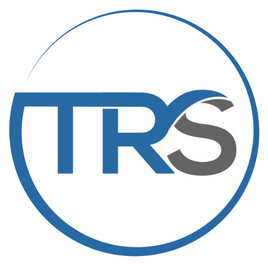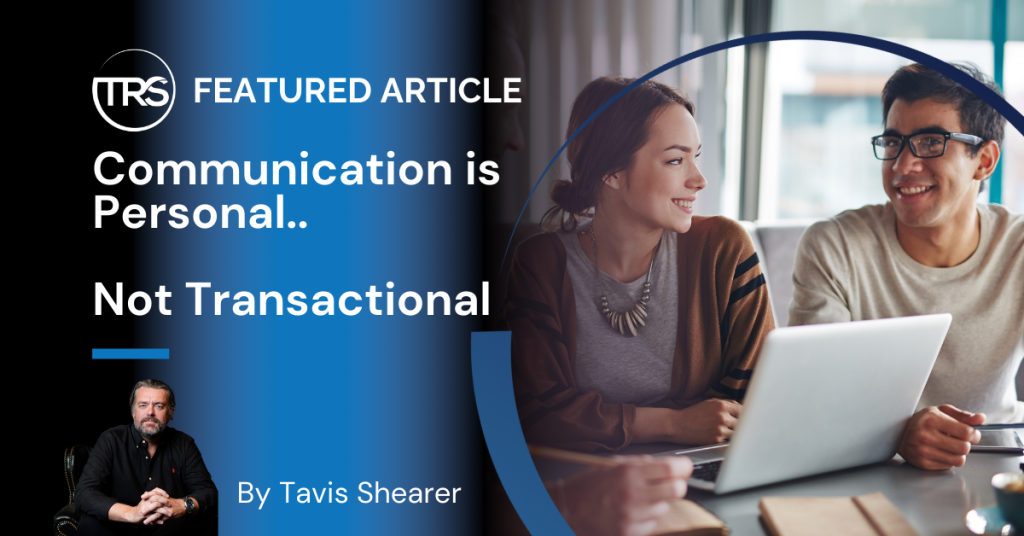Communication is Personal, Not Transactional
People want to and should be heard, understood, and respected; they should be made to feel like a number on a spreadsheet or another lead in the pipeline. Communication done well builds trust, loyalty, and retention, while transactional interactions leave people feeling undervalued and let’s be honest, they are quick to move on. Why Communication…
People want to and should be heard, understood, and respected; they should be made to feel like a number on a spreadsheet or another lead in the pipeline. Communication done well builds trust, loyalty, and retention, while transactional interactions leave people feeling undervalued and let’s be honest, they are quick to move on.
Why Communication Is Personal, Not Transactional
Let’s call it straight: transactional communication equals getting the job done with little to no effort, quick emails, template and AI responses, and one size fits all message. However, the truth is, businesses don’t survive on transactions; they thrive on relationships. When communication is personal, people feel seen, and clients feel you care about their business. Candidates trust you’ve got their best interests at heart. And trust me, that’s where recruitment, and business in general, sets itself apart.
What Transactional Communication Looks Like
To really drive the point home, here’s what transactional communication looks like to me:
- Generic emails with no context or personalisation.
- No listening, just pushing information.
- Tick-the-box conversations are more about closing a deal than solving a problem.
- Silence until it’s convenient for the sender.
Sound familiar? At the end of the day, guys, this approach makes people feel undervalued and that’s the quickest way to loosing trust.
The Benefits of Personal Communication
On the flip side, personal communication is a game-changer:
- Builds long-term relationships rather than short-term wins.
- Creates loyalty and retention, staff, clients, and partners stick around longer.
- Reduces misunderstandings by focusing on listening.
- Strengthens your reputation as a business people can trust.
Think about it: in recruitment, a candidate who feels genuinely understood will likely stay in the role longer. A client who feels valued is less likely to shop around for another agency.
Examples in Recruitment and Business
Here’s where it gets practical:
- Candidate care: Instead of blasting the same message to 100 job seekers, pick up the phone, listen to their goals, and give honest feedback.
- Client partnerships: Don’t just send over a CV. Explain why you believe the candidate will work culturally and technically for their business.
- Internal teams: Staff perform better when communication feels two-way. Leaders should listen, not just instruct.
That’s the difference between being remembered as a recruiter or partner people trust versus one they never call back.
How to Make Communication More Personal
Okay, so how do you move away from transactional habits? Here’s a simple piece of advice:
- Listen first, speak second. Real communication starts with understanding.
- Be specific. Reference details about their role, business, or goals.
- Follow up properly, not just when you want something, but to check in.
- Keep it real. Speak like a human.
- Be accountable for one’s own mistakes, provide solutions, and move forward.
Why This Matters for AI and Digital Channels
Here’s the kicker: With AI, automation, and digital interactions, communication still needs to feel human. Automated emails and chatbots serve a purpose, but if they lack authenticity, they they will become a transaction. In my experience I try and combine automation with human follow ups and personal communication.
Communication Is Personal: Final Word
Guys, at the end of the day, communication keeps businesses alive and kicking. It’s personal, not transactional. If you treat people like numbers, they’ll move on. If you treat them like partners, they’ll stay around. Like any relationship be it recruitment, sales and life in general. Some of the best businesses are built not on transactions, but on conversations and relationships.
FAQs: Communication Is Personal, Not Transactional
1. What does “communication is personal, not transactional” mean?
People want to and should be heard, understood, and respected; they should not be made to feel like a number on a spreadsheet or another lead in the pipeline.
2. Why is communication personal, not transactional in business?
Businesses don’t survive on transactions; they thrive on relationships. When communication is personal, people feel seen, clients feel you care about their business, and candidates trust you’ve got their best interests at heart.
3. What does transactional communication look like?
Transactional communication equals getting the job done with little to no effort: quick emails, template and AI responses, one size fits all messaging, no listening, tick the box conversations, and silence until it’s convenient for the sender.
4. What are the benefits of personal communication?
Personal communication builds long-term relationships rather than short-term wins, creates loyalty and retention, reduces misunderstandings by focusing on listening, and strengthens your reputation as a business people can trust.
5. How can you make communication more personal?
Listen first, speak second; be specific and reference details; follow up properly, not just when you want something; keep it real and speak like a human; and be accountable, provide solutions, and move forward.
How is Communication Is Personal, Not Transactional?
Communication is personal, not transactional. Businesses that prioritise relationships over quick interactions build stronger trust, loyalty, and retention. Transactional communication feels robotic and will leavess people feeling undervalued. Whereas personal conversations that involve listening, tailoring responses, and being accountable. This will create long-term success and embraces the human connection.
Download your step by step guide on how to Choosing the Right Recruitment Partner
Why are Smaller Specialised Agencies the Best Choice for Attraction and Retention?
Why Smaller, Specialised Recruitment Agencies Outperform the Big Names


